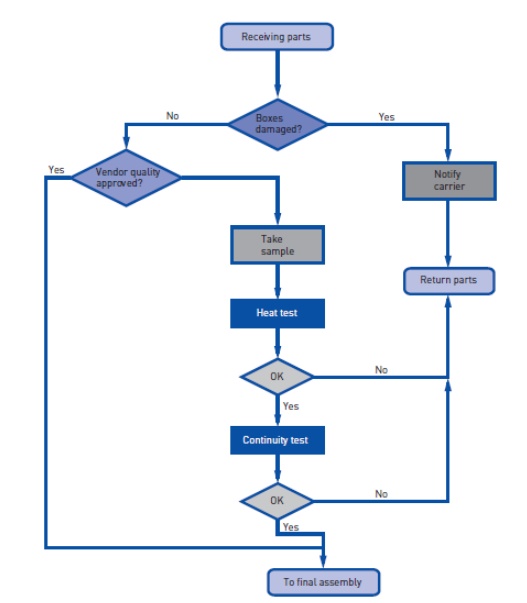Chapter: Professional Ethics in Engineering : Engineering Ethics
Consensus and Controversy
CONSENSUS AND CONTROVERSY:
Models
of professional roles (Professional roles to be played by an engineer)
It is understood that an engineer has to play
many roles while exercising his professional obligations. Some of the
professional roles or models are given below:
1.
Engineers as Saviors
ü It is believed that engineers hold the key for
any improvements in society through technological developments.
ü Thus some people consider engineer as a savior
because they redeem society from poverty, inefficiency, waste and the hardships
drudgery of manual labor.
2.
Engineers as Guardians
ü Engineers know the direction in which
technology should develop and the speed at which it should move. Thus many
people agree the role of engineers as guardians, as engineers guard the best
interests of society.
3.
Engineers as Bureaucratic Servants
ü The engineers‘ role in the management is to be
the servant who receives and translates the directives of management into solid
accomplishments.
ü Thus the engineers act as a bureaucratic
servants i.e., loyal organizations set by the management.
4.
Engineers as Social Servants
ü As we know, engineers have to play the role of
social servants to receive society‘s directives and to satisfy society‘s
desires.
5.
Engineers as Social Enablers and Catalysts
ü Besides merely practicising the management‘s
directives, the engineers have to play arole of creating a better society. Also
they should act as catalysts for making social changes.
ü Sometimes engineers have to help the management
and the society to understand their needs and to make decisions about desirable
technological development.
6.
Engineers as Game Players
ü In actual practice, engineers are neither
servants nor masters of anyone. In fact, they play the economic game rules,
which may be effective at a given time.
ü Like managers, the engineers‘ aim is also to
play successfully within the organization and moving ahead in a competitive
world.

Consensus
and Controversy
ü Literally, consensus means ‗agreement‘, and
controversy means ‗disagreement‘.
ü When an individual exercise moral autonomy, he
may not be able to attain the same results as other people obtain in practicing
their moral autonomy. Here there might be some differences in the practical
application of moral autonomy. This kind of controversies i.e., disagreements
are inevitable.
ü Since exercising moral autonomy is not as
precise and clear-cut as arithmetic, therefore the moral disagreements are
natural and common. So in order to allow scope for disagreement, the tolerance
is required among individuals with autonomous, reasonable and responsible
thinking.
ü According to the principle of tolerance, the
objective of teaching and studying engineering ethics is to discover ways of
promoting tolerance in the exercise of moral autonomy by engineers.
ü Thus the goal of teaching engineering ethics is
not merely producing always a unanimous moral conformity; it is about finding
the proper ways and means for promoting tolerance in the practical applications
of moral autonomy by engineers.
ü In a way, the goal of courses on engineering
ethics and goals of responsible engineering have some similarities. Both
situations require the need for some consensus regarding the role of authority.
ü Relationship between autonomy and authority
1. Moral autonomy and respect for authority are
compatible with each other. Exercising moral autonomy is based on the moral
concern for other people and recognition of good moral reasons. Also moral
autonomy emphasizes the capabilities and responsibilities of people. Authority
provides the framework through which learning attitudes are encouraged.
2. Sometimes, conflicts will arise between
individuals‘ need for autonomy and the need for consensus about authority. This
situation can be rescued by having open and frank
discussion regarding a moral issue with the
help of authority.
ü Illustration:
Consider the relationship between autonomy and
authority, with reference to a
classroom. In the classroom, the teachers have authority over students.
Authority of the teachers helps in maintaining the dignity and decorum of
academic climate in a institution; also in restoring the confidence and respect
between teachers and students.
As per the first point, there should be the
acceptance of authority of authority by both the teachers and students, in
order to conduct the classes in orderly ways.
When the authority is misused, conflicts may
arise between autonomy and authority. As per the second point, allowing open
discussions between teachers and students can reduce the unhealthy academic
atmosphere.
Related Topics